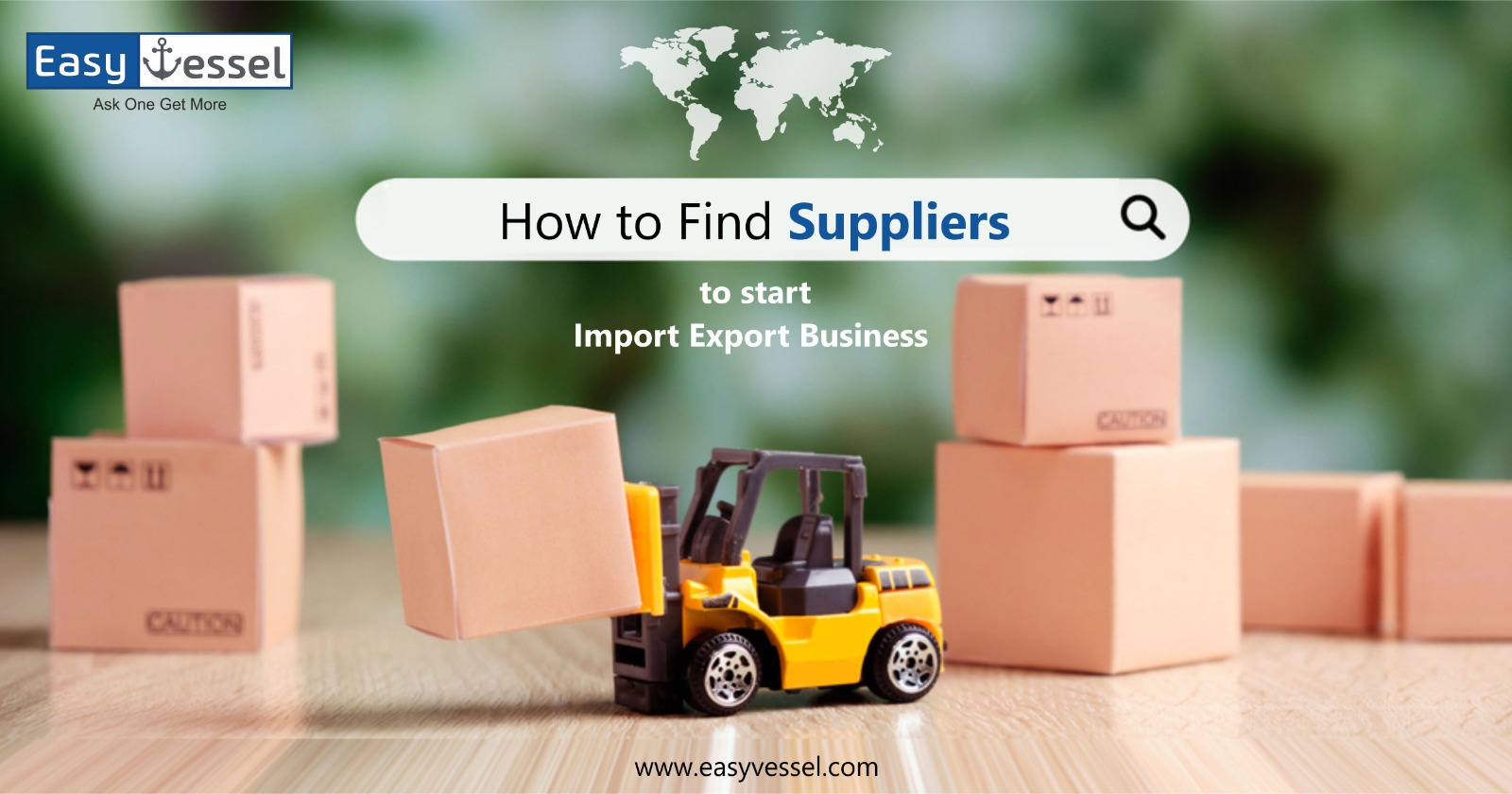- Finding genuine suppliers for your import export business is crucial but it is vital for success.
- To start an import-export business, suppliers play a crucial role as they provide the products you intend to export.
10 Key Steps to Find Supplier:
Here are the best 10 key steps to finding and working with suppliers in an import-export business:
- B2B Websites
- Exhibitions and Trade Fairs
- Direct Factory Visits
- Supplier Personal Visits
- Industry Associations and Directories
- Online Research
- Supplier Referrals/ Contact Friends and Relatives
- Local Chambers of Commerce & Trade Organizations
- Supplier Verification
- Sample Orders
1. B2B Websites
- Use B2B (business-to-business) websites such as Alibaba, Global Sources, Trade India, Indiamart, Google, Justdial, etc.
- Benefits: Moreover, a Vast array of suppliers from around the world, product variety, and the ability to compare suppliers based on feedback and ratings.
Tips & Considerations:
- Always examine the supplier reviews and ratings.
- Opt for suppliers with a “verified” status or those with gold ratings.
- These sites also often provide trade assurance, offering protection to buyers if issues arise.
2. Exhibitions and Trade Fairs
- Attend industry-specific exhibitions and trade fairs.
- These events bring together manufacturers and suppliers.
- Additionally, you can meet potential suppliers in person, inspect their products, and build relationships.
Benefits:
Furthermore, direct interaction with suppliers allows you to see actual samples, engage in immediate negotiations, and discover emerging trends in your industry.
Tips & Considerations:
- Furthermore, Prepare in advance.
- Know which suppliers you want to meet, set up appointments, and have a list of questions ready.
- Remember to collect business cards and catalogs.
3. Direct Factory Visits
- Plan visits to factories or manufacturers in the regions you’re interested in.
- This allows you to see their operations first-hand, assess quality, and negotiate deals face-to-face.
Benefits:
- A transparent view of the supplier’s production capabilities, quality control processes, and working conditions.
Tips & Considerations:
- Also, always set up an appointment. Prepare an inspection checklist. If possible, hire a local guide or interpreter if visiting a foreign country.
4. Supplier Personal Visits
- When suppliers travel to meet potential buyers.
- Set a clear agenda for the meeting.
- Ensure you have a private space for discussions, and involve key decision-makers from your side.
Benefits:
- Fosters trust and stronger business relationships.
- Demonstrates a supplier’s commitment.
5. Industry Associations and Directories
- Connect with industry associations or use their directories to find reputable suppliers.
- Furthermore, These associations often have lists of trusted companies in your specific field.
Benefits:
- Suppliers are often vetted by the industry group, ensuring some level of reliability.
Tips & Considerations:
- Join relevant industry associations not only for access to these directories but also to stay updated on industry news and best practices.
6. Online Research
- Use search engines like Google to find potential suppliers. Look for customer reviews and ratings to measure their credibility.
Benefits:
- A wide array of options can be discovered, often including those not found on B2B platforms.
Tips:
- Be specific in your search terms.
- For example, instead of “clothing suppliers”, search “organic cotton clothing suppliers in India”.
7. Supplier Referrals/ Contact Friends and Relatives:
- Also, Ask friends, relatives, or business contacts if they have any recommendations for trustworthy suppliers.
- Personal referrals can be valuable.
Benefits:
- Reduced risk due to a personal testimonial or first-hand experience.
Tips & Considerations:
- While personal recommendations are valuable, ensure you conduct an independent evaluation.
- Personal experiences may differ based on scale, business nature, or other factors.
8. Local Chambers of Commerce & Trade Organizations:
- Entities that often support businesses within specific regions or industries.
Benefits:
- In addition, They can connect you with trusted local suppliers and provide insights into the local business environment.
Tips & Considerations:
- Attend chamber events or workshops, which are prime networking opportunities.
9. Supplier Verification:
- Always verify the authenticity of a supplier before making any commitments.
- In addition, Check their business licenses, certifications, and references thoroughly.
- Be cautious of deals that seem too good to be true.
10. Sample Orders:
- Place small sample orders with potential suppliers to assess product quality, shipping times, and communication.
- This helps you test the waters before making larger commitments.
Conclusion:
- Remember that building a network of reliable suppliers takes time and effort.
- Crucially It’s essential to conduct due diligence and build strong relationships to ensure the success and sustainability of your import-export business.
- Following these steps and tips helps build strong relationships, maintain quality, and ensure your import-export business success.
- Easyvessel connects importers and exporters with multiple freight forwarders to get the best freight rates with 0% commission.
References:
Frequently Asked Questions
To find suppliers in India, use B2B websites such as IndiaMART or trade directories, attend Indian trade fairs, or connect with local chambers of commerce and industry associations.
To find global suppliers for your import-export business, kick off with online platforms like Alibaba, Global Sources, and Trade India. Engage in industry trade shows to personally meet suppliers, visit factories for direct insights, and foster stronger relationships. Additionally, explore industry associations, directories, conduct online searches, and find personal referrals for trusted suppliers. This comprehensive approach spanning online platforms, trade shows, industry networks, and personal connections will help build a reliable global supplier network for your business.
To find suppliers online, you can use B2B websites like Alibaba, Global Sources, and Trade India. These platforms connect you with a wide range of suppliers worldwide. You can also search on search engines like Google, use social media, or explore supplier directories.




